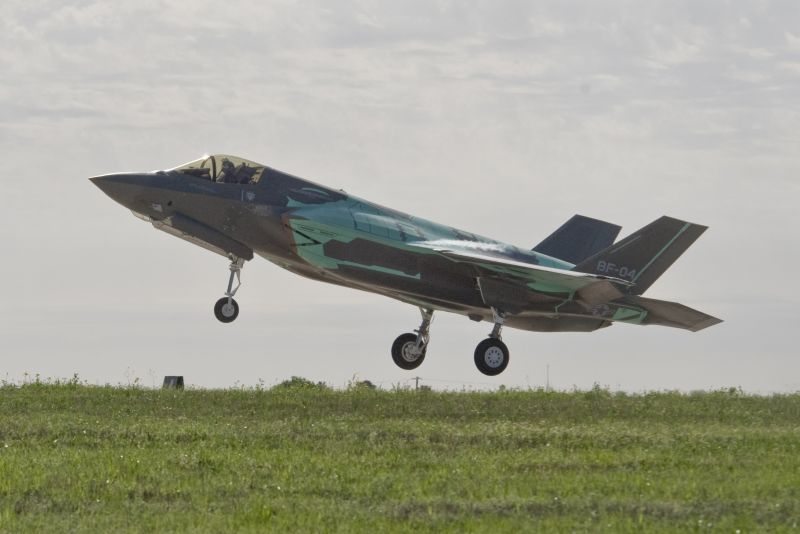Calling it crucial to the defense of North America, Defense Secretary Leon E. Panetta and Canadian Defense Minister Peter G. MacKay today emphasized that both nations are committed to developing the F-35 joint strike fighter.
At a news conference here in conjunction with the Halifax International Security Forum, the defense leaders said budget pressures should not stand in the way of fielding the next-generation fighter jet.
Panetta said he’s seen media reports that the U.S. is not committed to the joint strike fighter.
“Let me make very clear that the United States is committed to the development of the F-35 and to a cooperative relationship with the F-35 with our Canadian friends,” he said. “The F-35 is going to be an essential fighter that will help in (the North American Aerospace Defense Command) and will be the future in helping us with security challenges that we face.”
Despite looming budget cuts, Panetta said, the F-35’s capabilities are essential.
“I feel very confident that we’ll get funding for the F-35 program,” he said. “This is the fighter plane for the future, and in some ways, we really have no alternative. This is the plane that is going to be able to provide the technology (and) the capabilities for the future.
“We need to have this (aircraft),” Panetta continued. “It’s true for us. It’s true for our partners — not only Canadians, but others — who are going to work with us and participate with us in the development of the F-35.”
Making budget decisions involves looking for savings, the secretary said, citing areas such as procurement reform.
“But we also have to look at areas where we continue to invest in the future, and the F-35 is one of those areas,” he added.
MacKay said the “eye-watering technology aboard the F-35” is why Canada has chosen to participate in the program.
“It’s the ability to dominate and own the airspace over continental North America,” he said. “There is no fifth-generation aircraft other than the F-35 available to Canada and the United States, so all of the hypothetical discussions — and quite negative discussions, quite frankly — about this program are really just clatter and noise.
“This program is going ahead,” he continued. “Clearly, budgetary pressures are going to lead to speculation. We are dealing with our budgets, as all countries are dealing with this budget, but we are not wavering on our commitment to this program.”
Every defense department has certain pillars, MacKay said.
“This is one of those pillars: having the ability to protect your sovereignty. And there is a direct link — a direct link — between our national sovereignty and our ability to protect our airspace,” he said.










